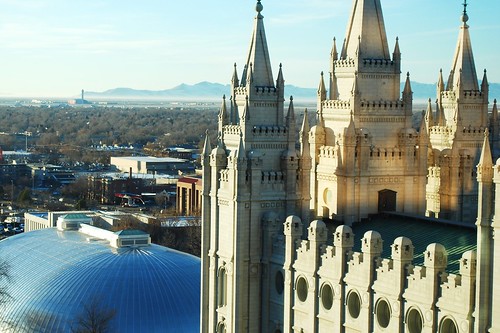 Mitt Romney can’t find enough good things to say about Israel. And like his now defunct challengers, Gingrich and Santorum, he continually accuses President Obama of failing to support the Jewish state. Early in the Republican primary campaign—almost a year ago now—Romney captured the mood of the Right’s accusations against the President:
Mitt Romney can’t find enough good things to say about Israel. And like his now defunct challengers, Gingrich and Santorum, he continually accuses President Obama of failing to support the Jewish state. Early in the Republican primary campaign—almost a year ago now—Romney captured the mood of the Right’s accusations against the President:
President Obama has thrown Israel under the bus. He has disrespected Israel and undermined its ability to negotiate peace. He has also violated a first principle of American foreign policy, which is to stand firm by our friends.
Of course, Obama also repeatedly swears loyalty to the US-Israel alliance, but in spite of his protestations, the so-called pro-Israel forces appear determinately arrayed against the president and his policies.
Though many Evangelicals are uncomfortable with Romney’s positions on some issues, his enthusiasm for the Israeli leadership—“Bibi Netanyahu and I are old friends,” Romney said recently, using Netanyahu’s nickname—resonates with the conservative Evangelical base. He made that claim in an interview in mid-March on an Alabama radio program, “The Rick & Bubba Show.” But on that very show, his enthusiasm for Israel led to tough questions for the candidate. As a Mormon, didn’t he believe that America, not Israel, was the Promised Land?
What lay behind the question is the well known idea, articulated by the Mormon prophet Joseph Smith in the early 1840s, that America was a “new Zion” in more than the metaphorical sense; it was a continent where God has intervened in human history in the past—and where He would do so in the future. Instead of addressing this compelling question, Romney kept returning to his “support of Israel” and his friendship with its current prime minister. But Rick and Bubba would not let up on the candidate; they posed the question three times in the course of the interview. Finally, Romney laughed and said, “You’re going to have to go talk to the Church and ask what they think about that! … There’s no question that Israel is the Promised Land.”
What was behind these questions, and what doctrinal point might Romney, a devout Mormon, be unaware of—or unwilling to broadcast?
The Church’s position is basically the following: there are two holy lands, two Zions—one in the Middle East and one in the American Southwest. These lands are inextricably linked in Mormon thought.
This concept of dual Zions was first expressed 170 years ago—a half century before the First Zionist Congress, held in Basel, Switzerland in 1897. In Joseph Smith’s1842 “Wentworth Letter”—a document in which Smith outlined the history and beliefs of his new Church of Latter Day Saints—the Mormon prophet wrote to his followers that:
We believe the Bible to be the word of God, as far as it is translated correctly; we also believe the Book of Mormon to be the word of God. We believe in the literal gathering of Israel and in the restoration of the Ten Lost Tribes—and that Zion will be built on this continent.
Smith’s ideas about the “literal gathering of Israel” did not remain in the realm of speculation. Rather, he acted on them with great haste. In the following year, 1843, Smith sent his emissary Orson Hyde to Jerusalem, a quite arduous journey in those pre-steamship-travel days. Smith instructed Hyde to bless the holy city and to pray for the return of the Jews to it. A visitor to Jerusalem today can visit the spot where Hyde made this prayer. The Jerusalem branch of Brigham Young University (formally known as the BYU Center for Near Eastern Studies), located on the slopes of Mount Scopus and overlooking the Temple Mount/Haram al-Sharif, was constructed in the 1980s directly above the spot from which Hyde blessed the city. And Mormons worldwide continue their advocacy for what, in Smith’s time, was termed “the restoration of the Jews” and was later, within fifty years of Smith’s murder in 1844, termed Zionism.
The conservative Christian “pro-Israel” agenda has become a permanent part of the Republican primary campaign and will likely continue through the general election. American Christian Zionism is as old as Jewish Zionism, but in Romney’s case, the roots are even deeper.











